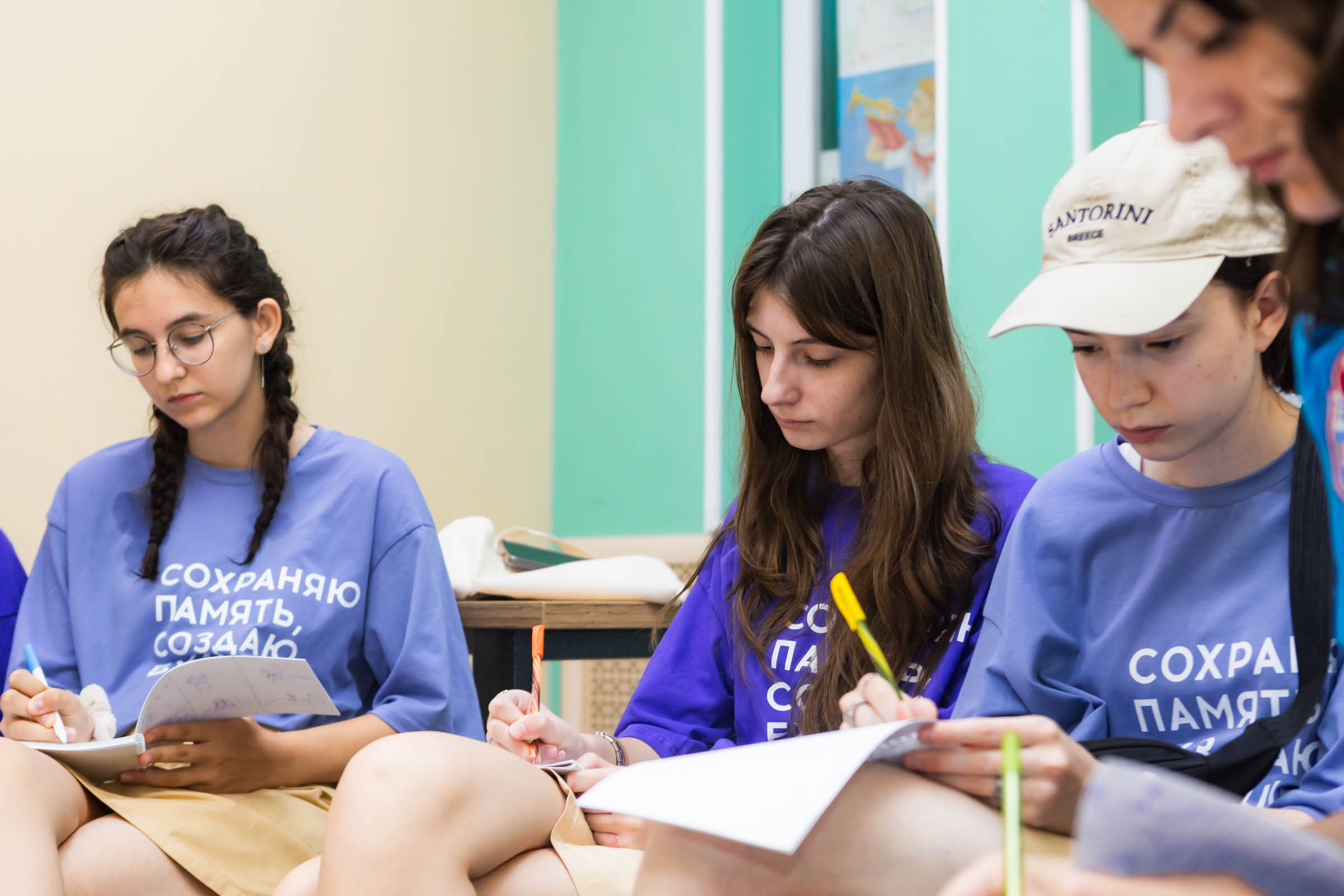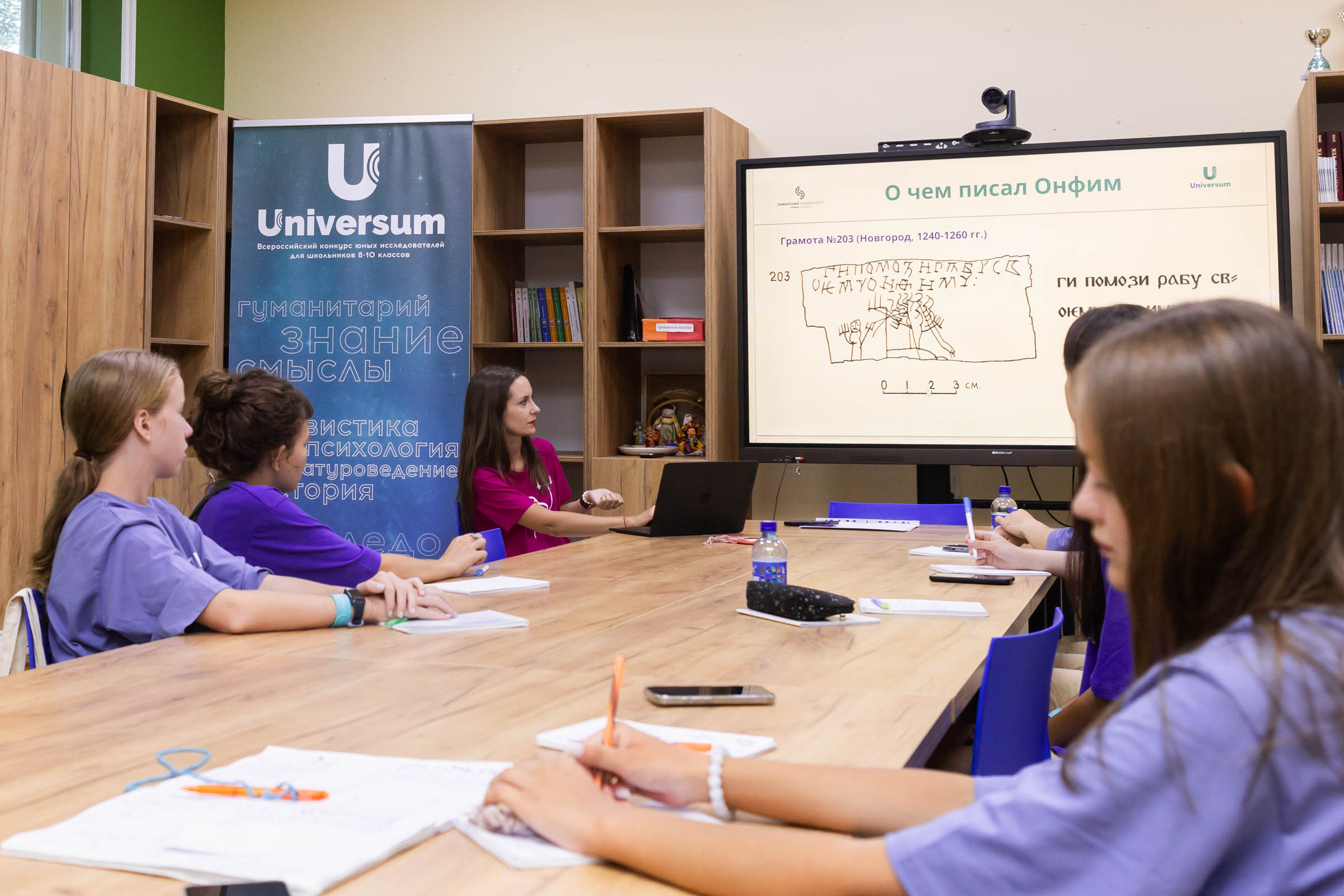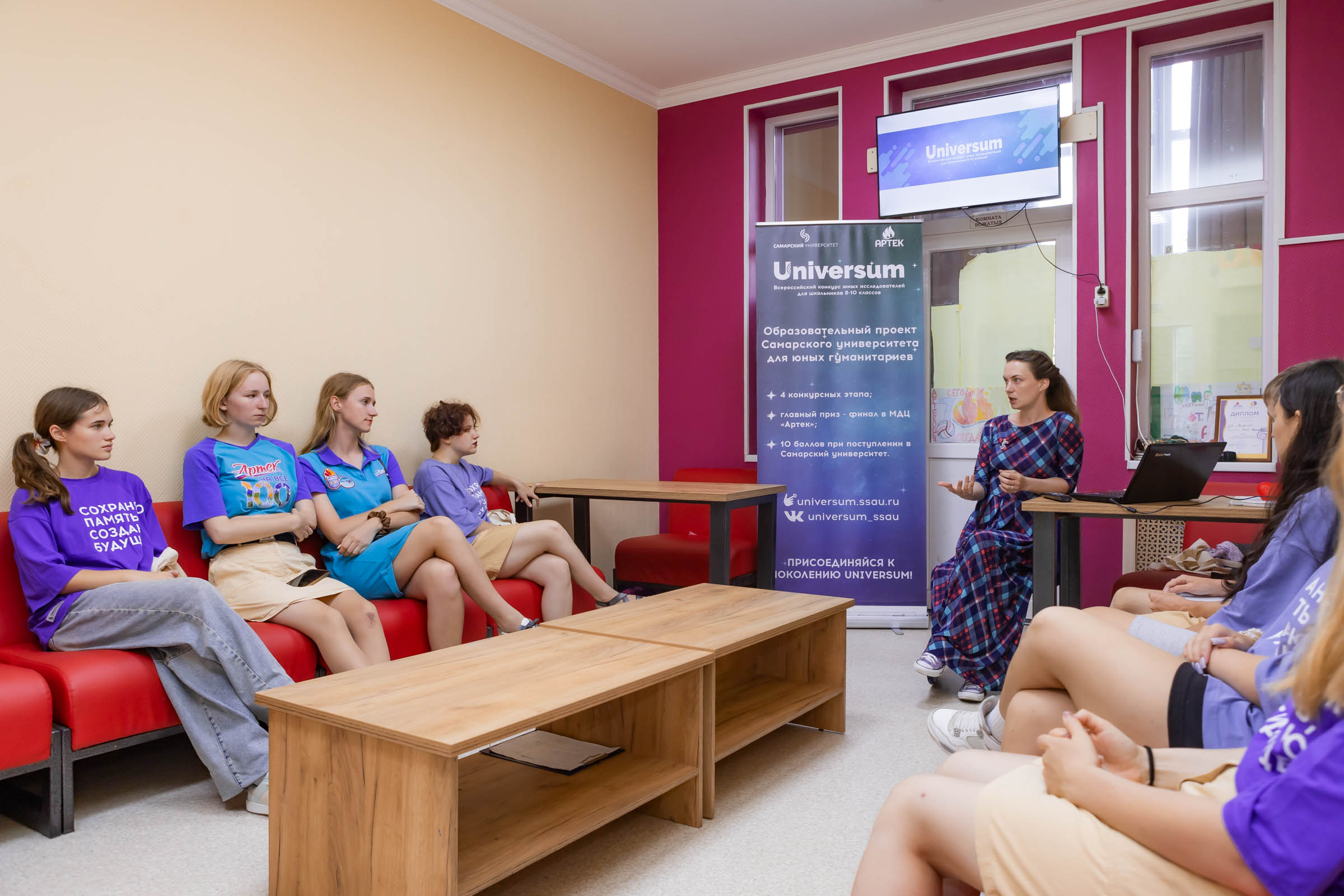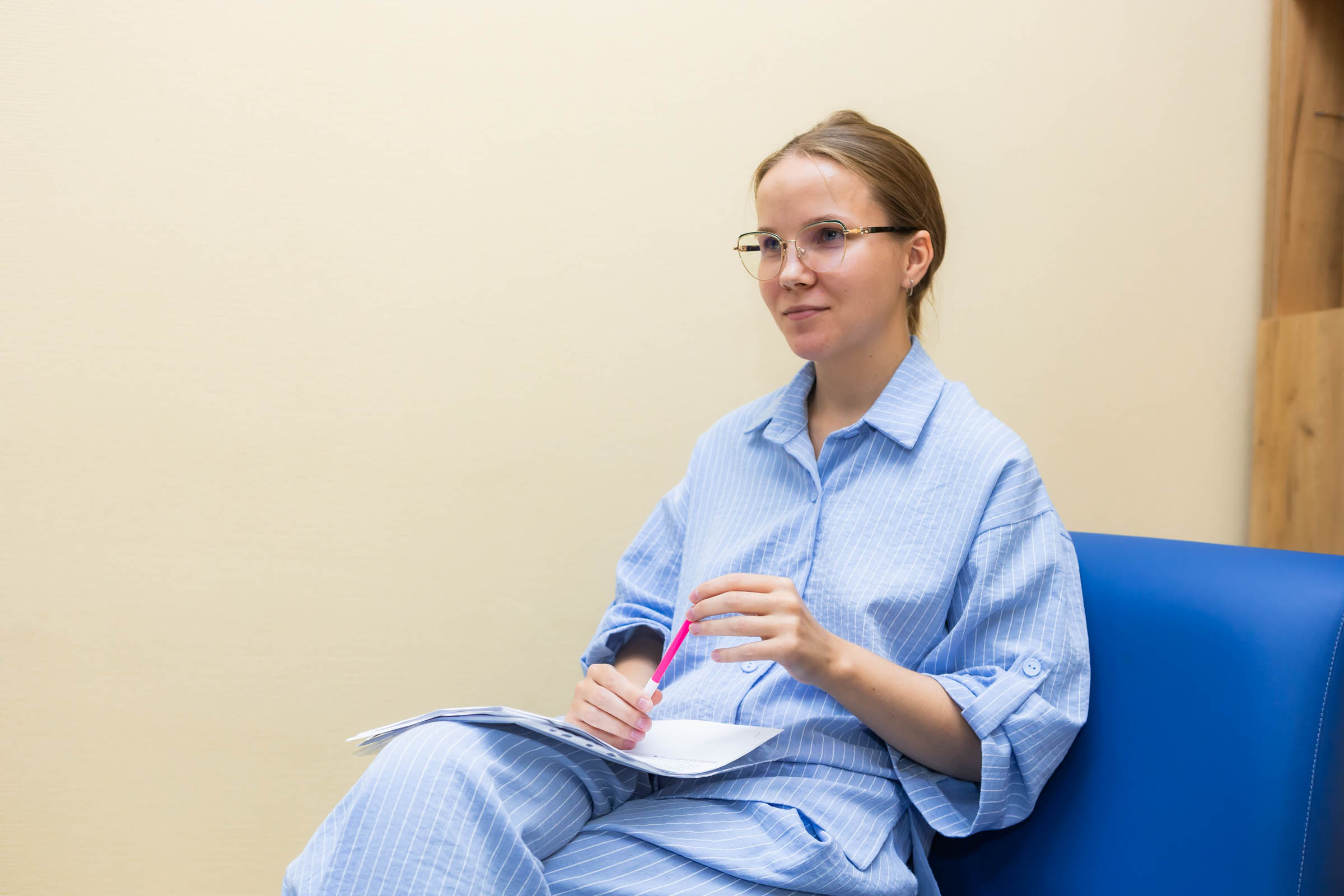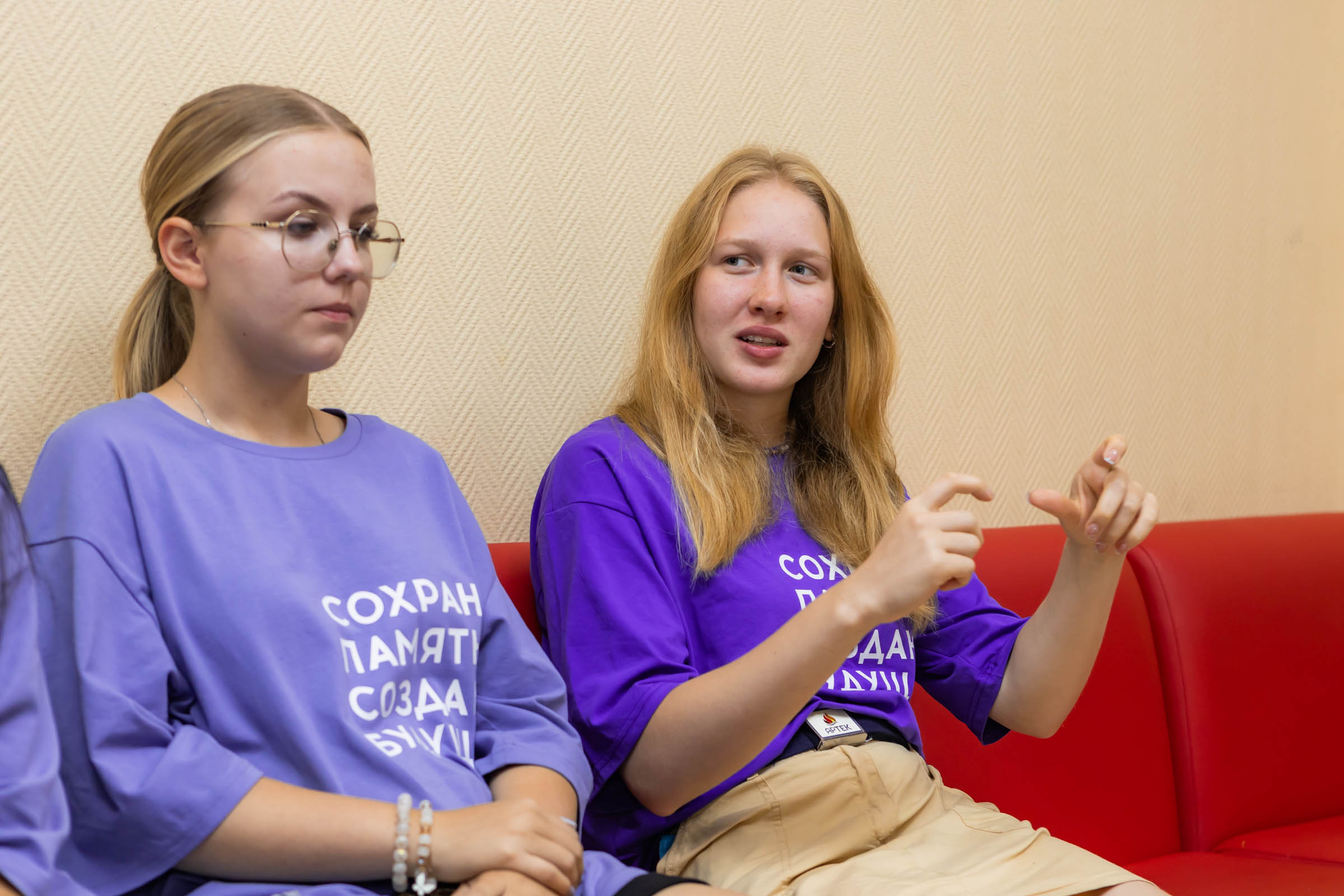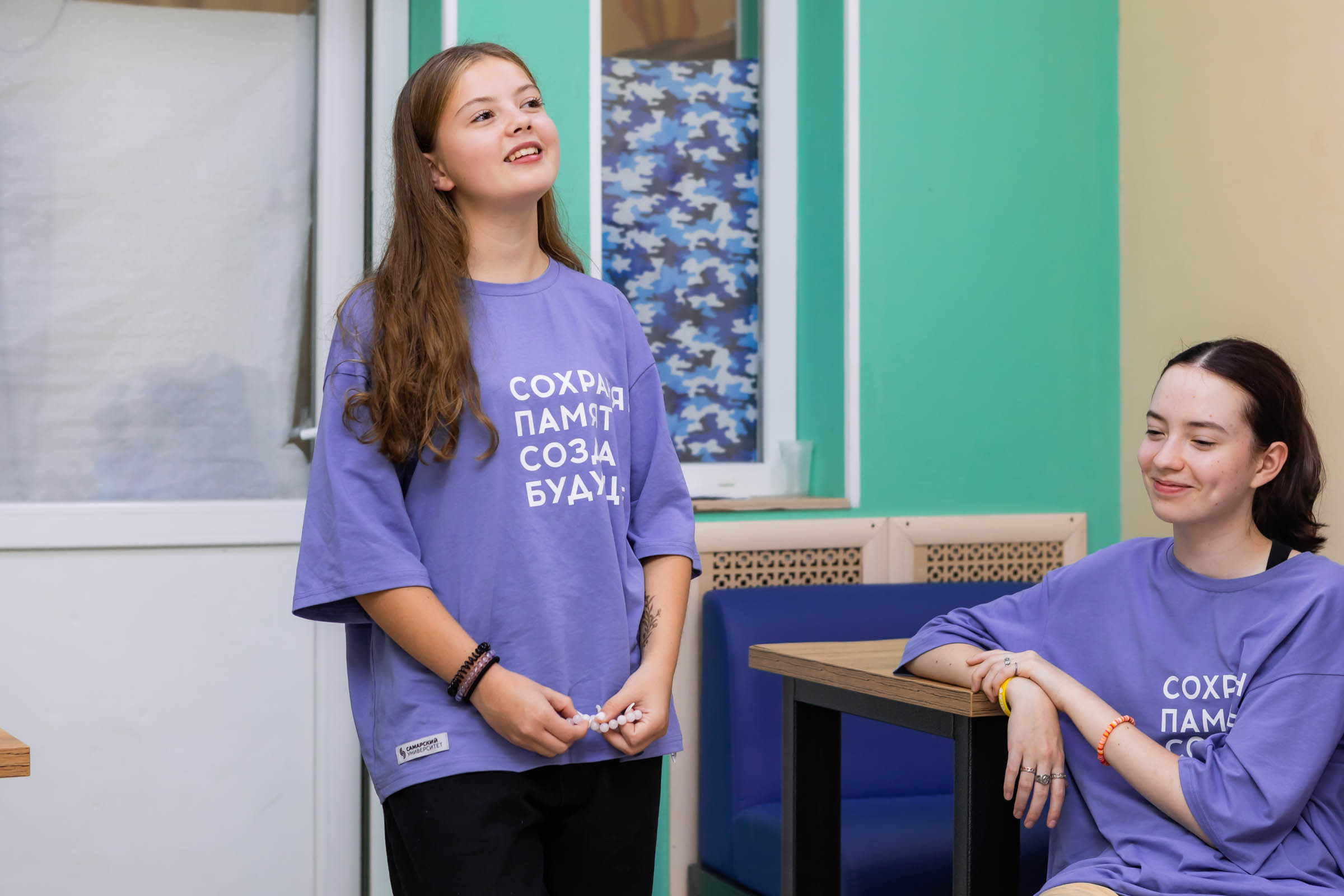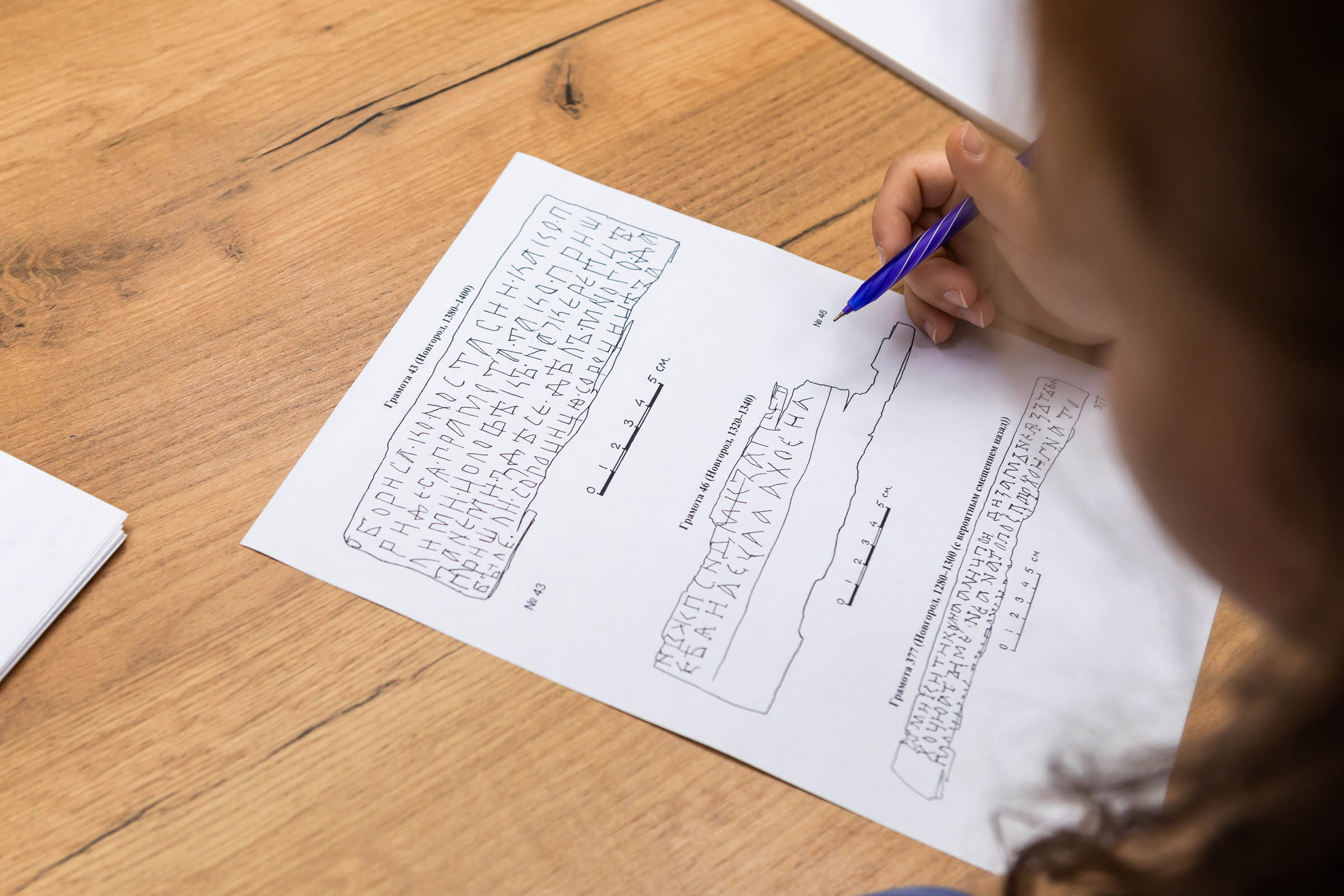The 10th session of 2025, "CLASS Time," is in full swing at the International Children's Center "Artek." Within its framework, Samara National Research University is implementing the additional educational program "Universum." This program became the bright final point of the nationwide humanities competition of the same name, which brought together 8th-10th-grade schoolchildren from all over the country.
The competition finalists are spending their time at "Artek" not only in an atmosphere of creative interaction but also in an intensive immersion into the humanities. Their mentors are lecturers from the Institute of Social Sciences and Humanities of Samara University:
· Daria Timoshina, Candidate of Sciences in Philology, Associate Professor of the Department of Russian Language and Mass Communications,
· Valeria Ivanova, Candidate of Sciences in Philosophy, Senior Lecturer of the Department of Russian and Foreign Literature and Public Relations,
· Alexandra Shikina, Assistant of the Department of Developmental Psychology.
The "Universum" program covers several thematic blocks – "Linguistics (Russian Language)", "Literary Studies", and "Psychology". The classes are designed so that schoolchildren can not only explore materials beyond the standard school curriculum but also apply this knowledge in their own mini-research projects.
In the Russian language classes, the young humanities scholars learned how linguistic scientists reconstruct cultural and individual memory. By deciphering Onfim's birchbark charters (13th-century Novgorod birchbark documents), the high school students understood how linguistics, archaeology, and paleography help us gain knowledge about our past. The schoolchildren also discussed the "memory" of toponyms using the example of object names in "Artek" and in their home regions. They also recalled precedent phenomena that unite different generations.
"The classes were all very memorable and interesting to me. I learned a lot of new things about linguistics, thank you Daria Vladimirovna for that. Every class we had a new topic, different from the previous one, it was unique and fascinating. I also really enjoyed working with the guys in our block; everyone is very open to discussion, it's so great. I am grateful to you for the incredible organization of the contest, the very interesting lectures; every lesson was intense in its own way, and for me, this is definitely the best contest!" shared Arina Sidorova, Samara Region, "Linguistics" block.
Participants of the "Psychology" block were introduced to the phenomenon of memory as a cognitive process: they learned about the role of memory in cognition and personal development, tried out psychological methods for diagnosing memory, practiced mnemonic techniques, and also saw for themselves how false memories can potentially arise.
"I really liked it, and the last lesson was the most memorable; it seemed the most interesting and useful to me (it was about reflection, after all). I learned many techniques from my block for memorization; I'm very glad my expectations were met. A huge thank you to our curators, organizers, and photographers. We really appreciate everything you have done and continue to do for us, thank you! Also, thanks for the merch, it's really cool!" noted Maria Zelenko, Samara Region, "Psychology" block.
Classes with the young literary scholars began with a discussion of how different scientific disciplines approach the understanding of memory, as it is through this interdisciplinary approach that it becomes evident that memory is a constitutive element of culture. They managed to examine memory in literature in a maximally multi-faceted way: from correlating memory (as a special mechanism) with myth, history, narrative, and mimesis, to the embodiment of the image of the past in specific texts.
"The most memorable part was writing 'reports' from the perspectives of different characters; I tried myself in the new role of a writer, which very much inspired me to create more such texts in the future. Thank you for the opportunity to be in a wonderful place, with the best people, and with new knowledge; I will not forget this competition," told Kristina Gorokh, Chelyabinsk Region, "Literary Studies" block.
According to the participants, the program will be remembered for its open atmosphere of dialogue, lively discussions with Samara University lecturers, and the feeling of being part of a vast universe of humanities knowledge.
"A huge thank you to 'Universum' for the new knowledge and experience. All the thematic lessons were imbued with a special atmosphere. We learned a lot that was new and useful, we practiced, and of course, we shared our own experiences, emotions, and impressions. Special thanks I would like to express to everyone who worked on the organization – our wonderful teachers and the film crew. You made this session truly exciting and helped us become a part of this huge universe of the humanities! Well, and we became one big, friendly team with the other participants, every member of which is open to communication and filled with positivity and inspiration," concluded Nadezhda Borovskikh, Samara Region, "Linguistics" block.
The educational program for high school students continues with master classes on public speaking. Soon, the participants will be able to show what they have learned during the session. On September 19, the final event of the "Universum" thematic session will take place – the popular science show Cogito ergo, where five finalists will present their research in an accessible way, and the next issue of the journal "Humanitarian 2.0" will be presented.
Photo by Daria Sheshunova
 RU
RU  EN
EN  CN
CN  ES
ES 
